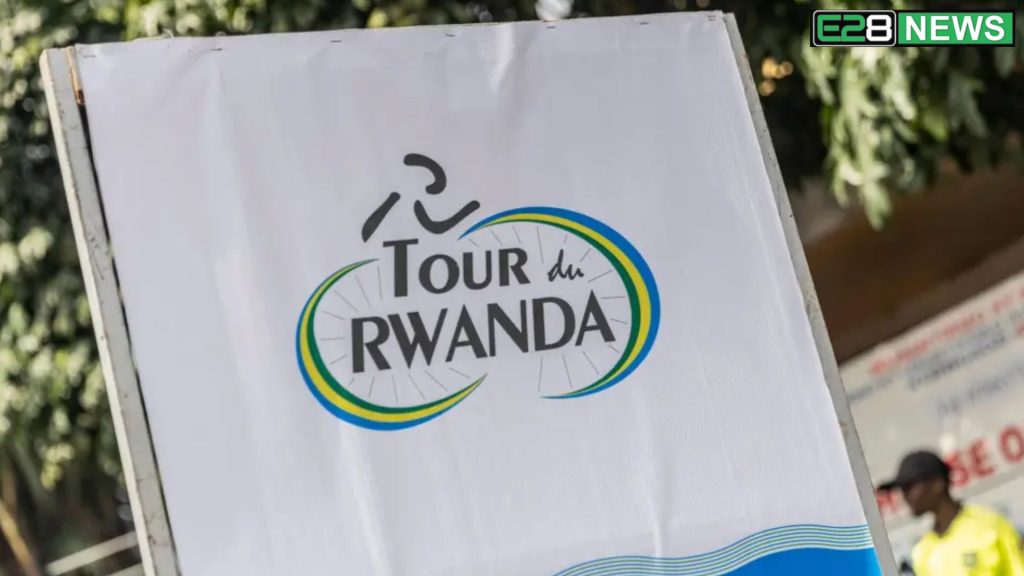Cyclists who joined the Tour du Rwanda told the BBC they “felt safe” despite security concerns.
The race lasted eight days and passed near the Democratic Republic of Congo’s border twice, coming within 20 kilometers of Goma and Bukavu. These cities were taken by the M23 rebel group in the past five weeks.
Because of this, the Belgian team Soudal Quick-Step withdrew before the race started.
However, South African cyclist Ryco Schutte told BBC Tigrinya, “I never felt unsafe.”
Belgian cyclist Kamiel Eeman from the Lotto Development Team added, “I really like Rwanda. I felt safe and didn’t notice anything.”
‘No plan B’
The Democratic Republic of Congo and the United Nations have accused Rwanda of supporting the M23 rebel group. However, both the Rwandan government and M23 leaders have denied this.
Since January, at least 8,500 people have died in the fighting, according to Congolese authorities. Hundreds of thousands have also lost their homes due to the violence.
Because of this, some people want the Road World Championships, set to happen in Rwanda in September, to be moved. Last week, most members of the European Parliament voted to cancel the event “if Rwanda does not change course,” but they have no control over the competition.
However, UCI president David Lappartient said in Kigali before the Tour that “there is no plan B” for the event.
Rwanda will be the first African country to host the championships in its 100-year history. It was chosen in September 2021 during the UCI’s 190th Congress when Lappartient was re-elected as president.
“I am happy we are going to Kigali,” Lappartient said.
‘Entirely safe for tourism and business’
The Tour du Rwanda started in 1988 as a local race and got UCI recognition in 2009.
This year’s race had seven stages. Stage three ended in Rubavu, near Goma, and stage five started in Rusizi, next to Bukavu.
Team Amani coach Tsgabu Grmay, who first raced in the Tour du Rwanda in 2010, said the conflict did not affect this year’s race.
“Everything was the same as before,” Grmay said. “For me, it was safe. I didn’t feel or see any conflict.”
In January, the UCI said, “Rwanda remains completely safe for tourism and business.”
Many Rwandans watching the Tour agreed.
“I can assure everyone that Rwanda is safe,” said Kampire Ovrine, a brand ambassador at stage five in Huye. “The conflicts outside will not affect the country.”
Hakizimana, a Kigali resident, told BBC Tigrinya, “For us, this is just international news. Our borders are secure, and everything is running as usual.”
According to the Tour’s official road book, security for the race was handled by Rwanda’s national police, with 38 officers, 15 police motorbikes, and four other vehicles.
Mussa Kaberuka, the Tour’s safety road manager, said, “Security is 100 per cent good. There are no problems in Rubavu or Rusizi.”
Sportswashing allegations
Rwanda’s government has been accused of using sports to improve its global image and hide its poor human rights record. Some call this “sportswashing.”
Lewis Mudge, Central Africa director at Human Rights Watch, told BBC Sport Africa that Rwanda does not always follow its own laws or international rules. He also said that freedom of speech and political independence in the country are shrinking.
However, Rwanda’s government denied these claims. Chief tourism officer Irene Murerwa called them a “distraction” from the country’s “amazing achievements.”
Final stage cancelled
French cyclist Fabien Doubey won this year’s Tour du Rwanda after the final stage in Kigali was canceled on Sunday due to bad weather.
When the race stopped, the leading group was just 12.5km from the finish. The last stage was supposed to follow the same route as the UCI Road World Championships.
Doubey was named the winner based on results from the first six stages.
Eritrean cyclist Henok Mulubrhan finished six seconds behind him in the overall ranking.
All races in September’s World Championships will take place in Kigali, which is more than 160km from Goma and over 250km from Bukavu.
Fitsum Woldeab from the Ethiopian Cycling Federation believes the location is safe.
“We heard about conflicts near these cities,” he told BBC Tigrinya. “But we saw nothing. Everything was safe and under control.
“For the World Championships, I think Rwanda is ready because the race will happen in just one city.”

